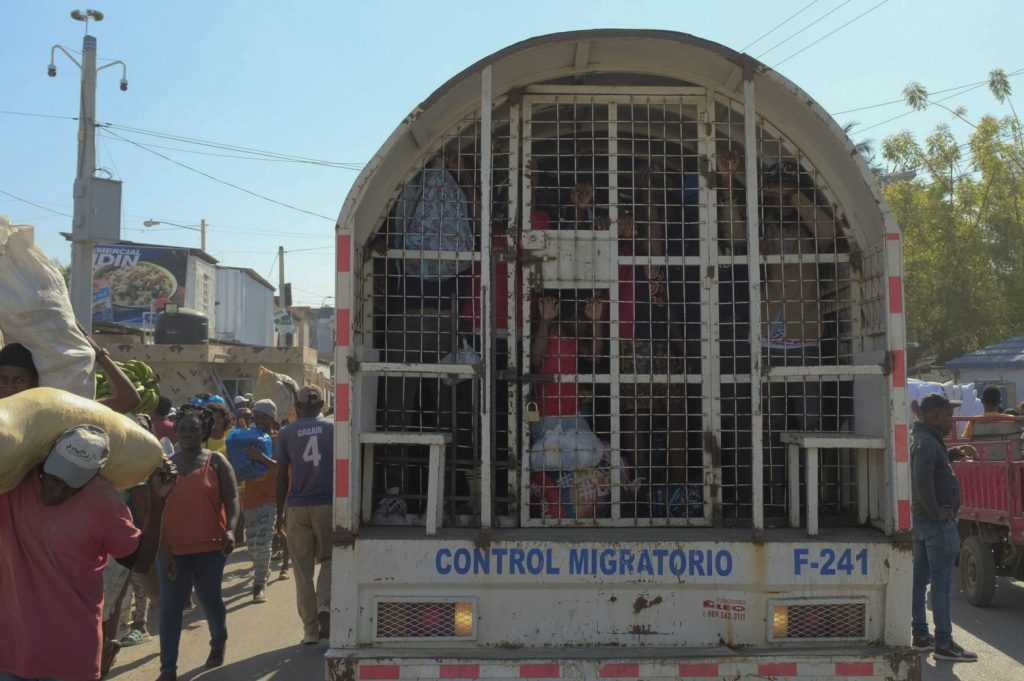Dominican Republic’s Weekly Deportation: Nearly 11,000 Haitians Returned
3 min read
Haitians attempting to escape the escalating violence and fled to neighboring Dominican Republic have been rounded up and deported

Haitians attempting to escape the escalating violence and fled to neighboring Dominican Republic have been rounded up and deported
In a significant move, the Dominican Republic has announced the deportation or repatriation of nearly 11,000 Haitians over the past week. This initiative reflects the government’s commitment to conducting regular deportation operations amid Haiti’s ongoing struggles with gang violence and pervasive poverty.
William Charpentier, who heads the National Coalition for Migrations and Refugees in the Dominican Republic, voiced concerns about the nature of these actions. “We have received information indicating that the police are executing these operations. This represents a persecution of Black people and those believed to be Haitians,” he stated, highlighting the racial implications of the deportations.
The Dominican Republic has ramped up its efforts, now targeting as many as 10,000 deportations each week. Gandy Thomas, the Haitian permanent representative, has condemned these measures, describing them as “a discriminatory campaign against Haitians based on nationality and skin color.” His comments come in light of the recent escalation in deportations.
In response to the situation, Haitian officials convened an emergency meeting at the Organization of American States (OAS). At this meeting, Thomas reiterated his condemnation of the deportation policy, calling it “a discriminatory campaign targeting Haitians because of their nationality and skin color.” He stressed the importance of dialogue and a “respectful solution,” condemning what he characterized as “serious abuses” faced by Haitians in the Dominican Republic.
“Haitian citizens in the Dominican Republic are facing serious violations of their rights as they seek safety and better prospects,” Thomas explained. “The international community needs to recognize this deportation policy for what it truly is—a discriminatory campaign rooted in nationality and skin color.”
Human rights organizations estimate that over half a million Haitians currently reside in the Dominican Republic. Activists argue that the ongoing deportations jeopardize the lives of many, particularly as Haiti continues to endure rampant gang violence and deteriorating living conditions.
The international response to the crisis in Haiti has been complicated. A U.N.-backed mission, which includes Kenyan police, has been working to address the gang-related issues that plague the country. However, the mission has faced significant challenges, including a lack of funding and personnel, hindering its effectiveness in restoring order.
From October 1 to October 7, the Dominican government reported that a total of 7,591 individuals were deported, alongside 3,323 who were repatriated, all of whom were identified as Haitian nationals. This highlights the scale of the deportation efforts and raises concerns about the humanitarian implications of such policies.
As these deportations continue, the plight of Haitians in the Dominican Republic remains a contentious issue. Critics argue that the Dominican government’s approach not only exacerbates existing tensions but also undermines the rights of vulnerable populations seeking refuge and stability.
Calls for reform and a more humane immigration policy are growing louder, with human rights advocates urging the Dominican government to reconsider its stance. The deportation policy, they argue, should be re-evaluated in light of the humanitarian crisis unfolding in Haiti, where many are fleeing desperate circumstances in search of safety and opportunity.
As the situation develops, the international community watches closely, emphasizing the need for a balanced approach that considers both national security and human rights. The ongoing tensions between the Dominican Republic and Haiti, compounded by the complexities of migration and race, continue to challenge regional stability and underscore the importance of dialogue and cooperation in addressing these critical issues.
The unfolding events represent a significant chapter in the relationship between the two nations, one marked by historical grievances and contemporary challenges that demand urgent attention and resolution.